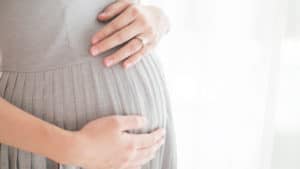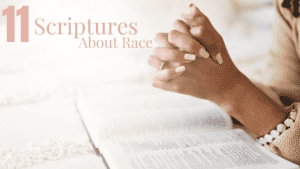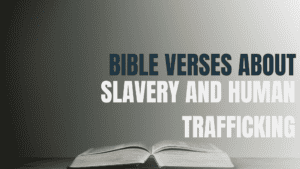The church, in many ways, already provides excellent support to foster and adoptive families. However, we have also to remember that the adoption triad consists of three perspectives: birth family, adoptive family, and adoptee.
To best serve the adoption community, our hearts must be humble and soft to what loving the full triad looks like— it goes beyond the adoptive family unit. Adoptees and birth parents also live this lifelong journey of adoption.
It is a triad for a reason, and we cannot ignore two of the three parts.
God sees the entire triad

Psalm 10:14 says:
“But you, God, see the trouble of the afflicted. You consider their grief and take it in hand. The victims commit themselves to you; you are the helper of the fatherless.”
This verse is often used to advocate for orphans, but do you see the beginning? But you, God, see the trouble of the afflicted. You consider their grief and take it into hand.
Adoption does not come without grief, for all sides. As a birth mom, I know the wounds deeply in my heart from adoption grief, and I talk with adoptees who feel this too. But Jesus absolutely can soothe those wounds! God calls us to love as He loves, and when we consider the grief of others, we can be moved to do something to help.
It starts with the heart.
How is the church talking about adoption? Right now, the narrative of adoption presented can be summed up as “an example of the gospel,” “beautiful,” “saving a baby,” or “caring for an orphan.” These assumptions may be true, but they can also be damaging, especially to the birth parents and placed children who are processing their stories. I highly encourage you to listen to this podcast on Christianity and the Gospel to learn more about the heart behind adoption.
As a church, we need to listen to birth moms and adoptees. This way, we can better support and educate adoptive families on the heart issues surrounding adoption. The church needs to ensure that they are equipping their families to fully love, better understand, serve, and uphold the promises that adoptive parents offer birth families. As open adoption is becoming more common, with good reason, the church also needs to update their approach when seeking to support this form of a blended family.
A ripple effect on the adoption triad.
Put yourself in an adult adoptee’s shoes for a moment: How upset would you be if you felt like your birth mom didn’t have the support she needed and deserved?
Whether that is physical support, and she felt forced to choose adoption to provide for you, or the emotional support to heal.

What if she had counseling and cared for her grief so that as you grew, she would be healthier to have a relationship with?
I hear this from adoptees often; They are upset that birth mothers, their birth mothers, were not given adequate support in their decision process and beyond. Even 30 years later, their birth mothers are still building a fortress around their hearts, unable to connect, unable to talk about what happened, and many relationships suffer from this.
This neglect can have devastating effects on adoptees. In fact, when an adoptee is missing pieces of their identity or denied proper support for healing, they are four times more likely to commit suicide.
What if one kind movement could change everything?
What if the church stepped in to help a birth parent heal and cope with their grief?
How much richer would their lives be if they knew the truth— that they are loved and worthy of love.
What if kindness became was a ripple effect in a birth mother’s life, ushering both healing and a healthy relationship with her placed child?
If the church changed the way it served expectant mommas, no matter the choice she makes, and helped her well, think how this could change for the whole adoption triad!
Emotionally healthy, adoption educated people need to step into this role to make changes. What we are doing as a church is barely scratching the surface to reach the hurting. There are easy ways to do this!
Tangible ways your church can expand their adoption triad ministry.
- Host educational classes about the lifelong journey of modern adoption and open adoption relationships.
- Host panels of different perspectives and stories from the triad.
- Have trauma-informed adoption parenting resources.
- Have birth parent healing resources available.
- Promote adoption experienced counseling for all parts of the triad.
- Provide financial and emotional support to hopeful adoptive families.
- Support expectant mommas as they consider all their options, without judgment, and practical support during pregnancy, no matter what she decides (Embrace Grace is great for this!).
- Continue to check on birth parents after placement.
- Set up a meal train for new birth mothers and adoptive families.
- Establish adoptee, adoptive family, and birth parent support groups.
- Fundraise for birth parent and adoptee healing retreat costs.
- Connect with local pregnancy centers and maternity homes.
- Vet adoption agencies for ethical practices with which you can partner and refer.
Your community needs you.
I challenge you to look up these kinds of resources in your area. Very few exist, even outside the church! These are real needs within the adoption community, and the church has a large number of members who are adopting. Our words of being pro-life and supporting those who walk through the adoption journey need to follow up with action.




















